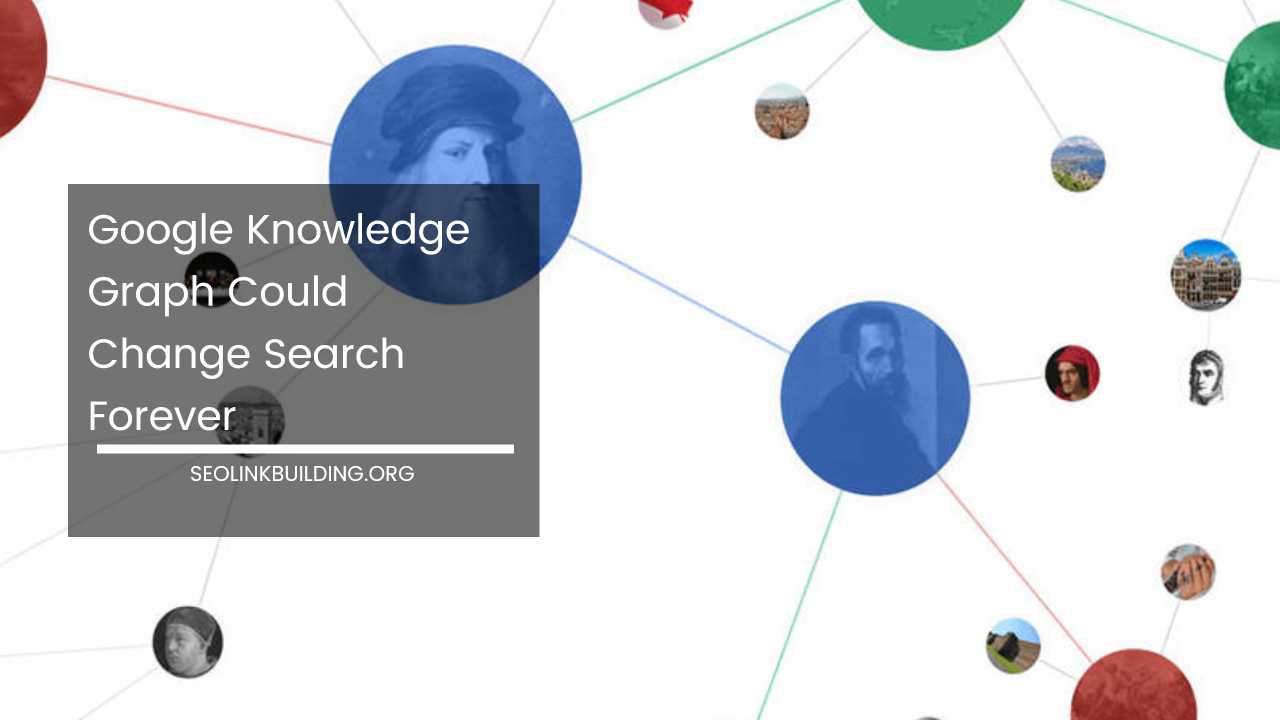Unlock SEO Power: How the Google Knowledge Graph Boosts Your Website

Demystifying the Google Knowledge Graph: A Guide to SEO Optimization
The digital landscape is constantly evolving, and search engines are becoming increasingly sophisticated in their understanding of user intent.
At the forefront of this revolution lies Google’s Knowledge Graph (KG), a massive database of interconnected entities that shapes how search results are presented.
For SEO professionals, understanding the KG and optimizing content for it is no longer a nicety, but a necessity.
This comprehensive guide will delve into the world of the Google Knowledge Graph, exploring its purpose, functionality, and its impact on search engine optimization. We’ll equip you with the knowledge and strategies to leverage the KG to boost your website’s visibility and organic traffic.
Unveiling the Google Knowledge Graph
Imagine a giant web of information, where people, places, things, and concepts are interconnected by relationships and attributes. This is essentially the Google Knowledge Graph (KG). It’s a massive collection of billions of entities and the relationships between them, acting as a central knowledge base for Google Search.
Think of it as a digital encyclopedia that Google constantly refines and updates. When you search for something on Google, the KG plays a crucial role in understanding the context of your query and providing the most relevant information.
Here’s a breakdown of how the KG functions:
- Entities: These are the fundamental building blocks of the KG, representing real-world objects like people (Albert Einstein), places (Taj Mahal), organizations (NASA), and even abstract concepts (love).
- Attributes: Each entity has associated attributes that describe its characteristics. For example, an attribute for “Albert Einstein” might be “profession: physicist.”
- Relationships: The connections between entities define the structure of the KG. For instance, “Albert Einstein” might be linked to the entity “University of Zurich” through the relationship “attended.”
By leveraging this network of information, Google can interpret your search queries with greater depth and nuance. It can not only identify relevant webpages but also extract and display key facts directly in the search results page (SERP) through a feature called the Knowledge Panel.
The Power of the Knowledge Panel
The Knowledge Panel is a visual representation of an entity drawn from the KG, typically displayed on the right-hand side of the SERP for specific searches. It provides users with a quick snapshot of essential information about the searched entity.
Here’s what you might see in a Knowledge Panel:
- Basic biographical details (for people)
- Contact information (for businesses)
- Images and videos
- Key facts and statistics
- Related entities
The Knowledge Panel serves a dual purpose: it enhances the user experience by offering immediate answers, and it influences user behavior by potentially reducing the need to click through to websites.
For businesses and entities striving for online visibility, securing a prominent spot in the Knowledge Panel is a valuable SEO objective.
How the Google Knowledge Graph Impacts SEO
With the KG playing a central role in shaping search results, understanding its implications for SEO is crucial. Here’s how the KG landscape affects your website’s search engine optimization efforts:
- Entity Recognition: Google prioritizes websites that demonstrate a strong association with relevant entities in the KG. By creating content that revolves around well-defined entities and their relationships, you increase your website’s chances of ranking higher in SERPs.
- Topic Modeling: The KG helps Google understand the broader context and topics covered on your website. By using relevant keywords and structuring your content logically, you can ensure that Google accurately interprets the topics you address.
- Semantic Search: The KG empowers Google to move beyond exact-match keywords and grasp the true meaning behind a search query. Optimizing your content for semantic relevance, focusing on user intent rather than just keywords, becomes more important.
Strategies for KG Optimization
While there’s no guaranteed formula for landing a spot in the Knowledge Panel, there are strategic steps you can take to improve your website’s alignment with the Google Knowledge Graph:
- Structured Data Markup: Implementing schema.org markup on your website helps Google understand the entities and relationships present on your pages. This allows Google to more accurately interpret your content and potentially display it in the Knowledge Panel. Common schema types include articles, organizations, local businesses, and events.
- High-Quality Content: Creating informative and well-researched content that establishes your website as a credible source of information is paramount. Focus on providing in-depth details about relevant entities and their connections. Go beyond surface-level information and strive to offer unique insights and perspectives.
- Entity Mentions: Strategically incorporating mentions of relevant entities within your content can strengthen your website’s association with those entities in the KG. However, ensure these mentions are natural and relevant to the context of your content. Forcing mentions can appear unnatural and hurt your SEO efforts.
- Internal Linking: A well-structured internal linking strategy can help Google understand the relationships between different pages on your website. By linking to relevant entities and topics within your own content, you demonstrate a deeper understanding of the subject matter and potentially strengthen your overall KG association.
- External Backlinks: High-quality backlinks from reputable websites act as a vote of confidence for your content. When other websites link to yours, especially those that are well-established within the KG themselves, it signals to Google that your website is a trustworthy source of information about the related entities.
- Optimize for Local SEO (if applicable): For local businesses, optimizing your Google My Business profile and ensuring consistent NAP (Name, Address, Phone number) citations across the web are crucial for claiming and managing your Knowledge Panel.
- Stay Updated with KG Developments: The Google Knowledge Graph is constantly evolving. Staying informed about the latest updates and best practices through Google’s developer resources and industry publications will help you refine your KG optimization strategy over time.
Beyond Ranking: The True Value of KG Optimization
While securing a prominent spot in the Knowledge Panel is a desirable outcome, the true value of KG optimization extends beyond immediate SEO gains. By aligning your website with the KG, you achieve several strategic benefits:
- Enhanced User Experience: Content optimized for the KG is likely to be more informative and comprehensive, catering to the user’s desire for deeper understanding. This can lead to increased user engagement and time spent on your website.
- Improved Brand Authority: Demonstrating a strong association with relevant entities in the KG positions your website as a thought leader within your industry. This can enhance brand credibility and trust among your target audience.
- Targeted Audience Reach: By understanding the entities and topics your website focuses on, Google can better connect your content with users who are actively searching for related information. This leads to a more targeted audience for your website and potentially higher conversion rates.
Conclusion: Embracing the Future of SEO
The Google Knowledge Graph is a powerful tool that shapes the future of search engine optimization. By understanding its functionality and implementing effective KG optimization strategies, you can ensure your website remains visible and relevant in the ever-evolving search landscape.
Remember, KG optimization is not a one-time fix, but an ongoing process of content creation, refinement, and adaptation.
As Google’s understanding of the web continues to grow, so too should your approach to KG optimization. By embracing this knowledge-driven approach to SEO, you can position your website for long-term success in the digital age.













